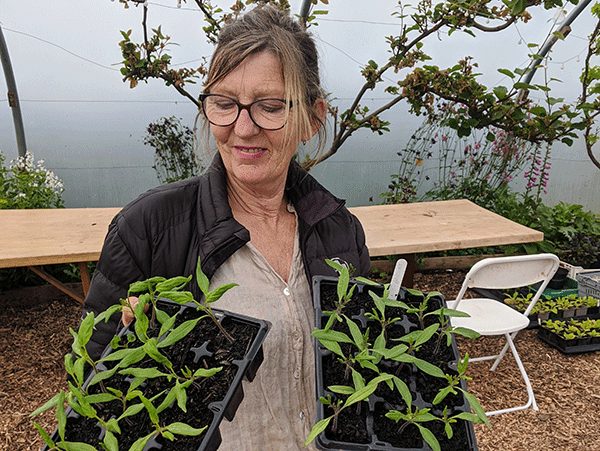When you think of extinction, the first thing that comes to mind is more likely to be a wild animal than a seed. But rare, heritage seeds are actually at risk of disappearing after new seed regulations in the 1970s meant seed had to be registered to be sold commercially, at a cost that meant less common varieties fell into disuse.
“Varieties that had previously been easily marketed and traded were now subject to much more stringent tests and financial costs to keep them commercially available,” explains Catrina Fenton, head of the Heritage Seed Library at Garden Organic, which was set up to preserve both rare seeds and the skills to store and grow them.
“We estimate that since the start of the 20th century we have lost hundreds, if not thousands, of cultivated vegetable varieties, the combined result of changing agricultural methods, grower and consumer habits and seed legislation,” she says.
With a collection of around 800 rediscovered varieties that are not widely available, the library receives heritage donations from gardeners or citizens who may have seeds passed down by careful horticulturalists in their family. These are stored and given out to select growers to continue the line and keep this valuable plant diversity in production.

One such new partnership is with head gardener at Riverford Field Kitchen restaurant’s polytunnel, Penny Hemming, who has taken six heritage rare varieties to produce and generate more seed, and return to the library. The three pea and two tomatoes she is growing under the project all have unique stories, including the Devonia tomato, which came from a donor whose grandfather was a horticulturalist in Braunton, north Devon, and has now returned to its home county under Hemming’s care.
Described as a classic round, red tomato with excellent flavour, the Devonia is a new seed to the library after it was donated and trialled last year.
Another one, Pea Veitch’s Western Express, came from the famous Veitch’s Nursery, and had been maintained by a gardener in Exeter for over 25 years before being passed on to the library. It is catalogued as a delicious tasting pea that grows up to 1.8m and freezes well, while the plump pods contain up to 10 peas in each.

While flavour is as good a reason as any to keep these heritage seeds in existence, there are other more ecological reasons. Heritage seeds are what’s called ‘open pollinated’, meaning they can be pollinated and reproduce naturally – this contrasts with commercial varieties, known as F1s, which are bred by crossing two parent varieties and will not reproduce with the same qualities.
“Importantly, this is not simply about preserving past heritage but also ensuring we look after our important genetic biodiversity for future generations,” says Fenton, of Garden Organic. “Open pollinated varieties are genetically variable and potentially able to meet and adapt to environmental challenges such as pest, pathogen and climate change.”
“Seed from down the road is much more likely to adapt to local conditions,” explains Hemming, who points out the importance of this adaptability in context of climate change and increasingly erratic weather. Even this growing season has thrown plans out of kilter, as many UK new season vegetables were delayed by an unseasonally cold and wet May.

Saving seed not only saves money (it’s a free source of future vegetables, after all), but also empowers gardeners, says Hemming. “I do it to pass on knowledge to other gardeners to show them it’s possible. Everyone used to save their own seeds, and this puts the power back with the gardeners,” she says.
It’s also a fascinating historic link between family generations, says Fenton, who explains why these seeds are often described as ‘heirloom’. “We have lots named after uncles and aunties, grandparents and local figures and this often reflects the story of how and why they were saved.
“The original variety name may have been lost as a result and with the passage of time they have simply become known as so-and-so’s bean. The seed and story often makes its way to us via a family member or communities who are keen for that legacy to continue,” she says.
And there’s always a chance for more heritage seed discoveries to add to the collection. As Fenton explains: “We are always on the look-out for that next little gem, so if you are growing something that is not widely available and a little bit special, perhaps from seed given to you that has been saved for some time and has a history behind it, then we would love to hear from you.”
How can you get involved?
– Become a member of Garden Organic, which relies on this support to continue its work in saving and storing heritage British seeds.
– Sign up to an introduction to seed saving, a webinar run by the Heritage Seed Library.
– Swap and share seeds with neighbours or local allotmenteers – you’ll be surprised at the wealth of knowledge in your local community.
– Seek out and buy from independent retailers of heritage organic seeds, including Vital Seeds in Devon or The Seed Cooperative in Lincolnshire.









0 Comments